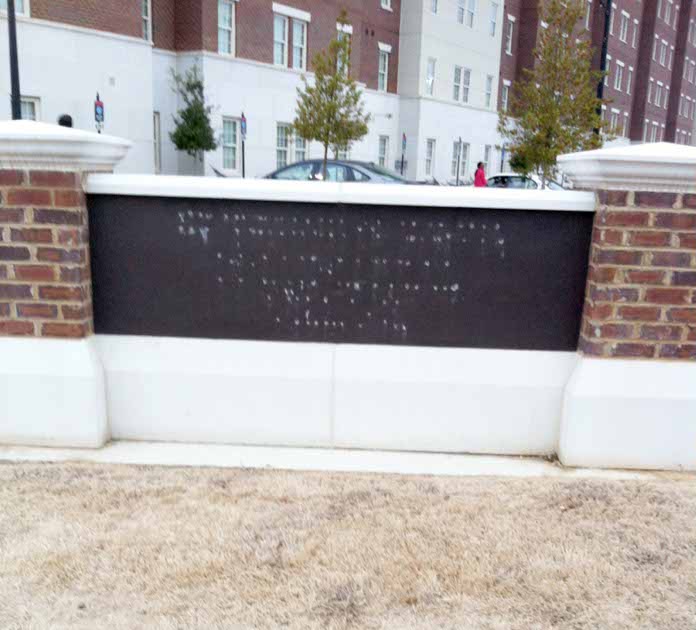Since the beginning of the school year, residence halls like Presidential Village and Ridgecrest have taken a beating. Vandalism in these buildings has grown rapidly, with most instances occurring on the weekends at the hands of a few groups of students.
Broken and torn signs, holes in the ceilings and trash left in the elevators show evidence of the increasing damage of property at the residential halls, where the majority of freshman students are housed each year. The issue has been a concern to those who are responsible for the well-being of the residence halls and safety of the students who reside there.
“We’re concerned that a few members of the community are affecting the security and comfort of the rest of the community,” Alicia Browne, director of housing for Housing and Residential Communities, said.
(See also “Dorm residents face potential fines“)
Reports of vandalism go beyond breaking objects and punching holes.
“On any given night, you can go on an elevator, and there are dozens of items of trash and even urine on the floor,” A.J. Jackson, a junior and a resident advisor for Presidential Village, said.
The problem has also been troubling for many other resident advisors because of the workload it puts on the janitors of the buildings who have to clean up the mess that is left behind.
Some people concerned with the rising destruction of property question the motivation behind it.
“Would you tear up your wall at your own house? Probably not,” Judy Burrows, a resident advisor, said. “Here, you have more freedom, but people abuse that freedom too much.”
(See also “Vandalism continues at Ridgecrest“)
The vandalism and damage to property not only puts other students’ safety at risk, but also causes a financial burden on the residence halls. Residence halls are responsible for hiring people to repair walls, replace destroyed signs and clean up trashed hallways and elevators.
So far, little has been enforced to counter the destruction of University property, with the hundreds of students who live in the residence halls making it difficult to predict when vandalism will occur and pinpoint perpetrators. However, solutions are likely to be implemented soon, such as the possibility of hiring more staff to watch for illegal activity.
“One night, a security guard stood outside the door where a lot of chaos takes place, and the building was completely quiet,” Briah Golder, a resident advisor for Presidential Village, said.
Browne also said another way the residence halls might shift responsibility onto the residents is through the use of group billings of the housing contracts. Group billing would legally hold all of the students in a room responsible for one person’s damage of the property and would relieve the financial burden of the damage.
(See also “Dorms part of freshman experience“)









